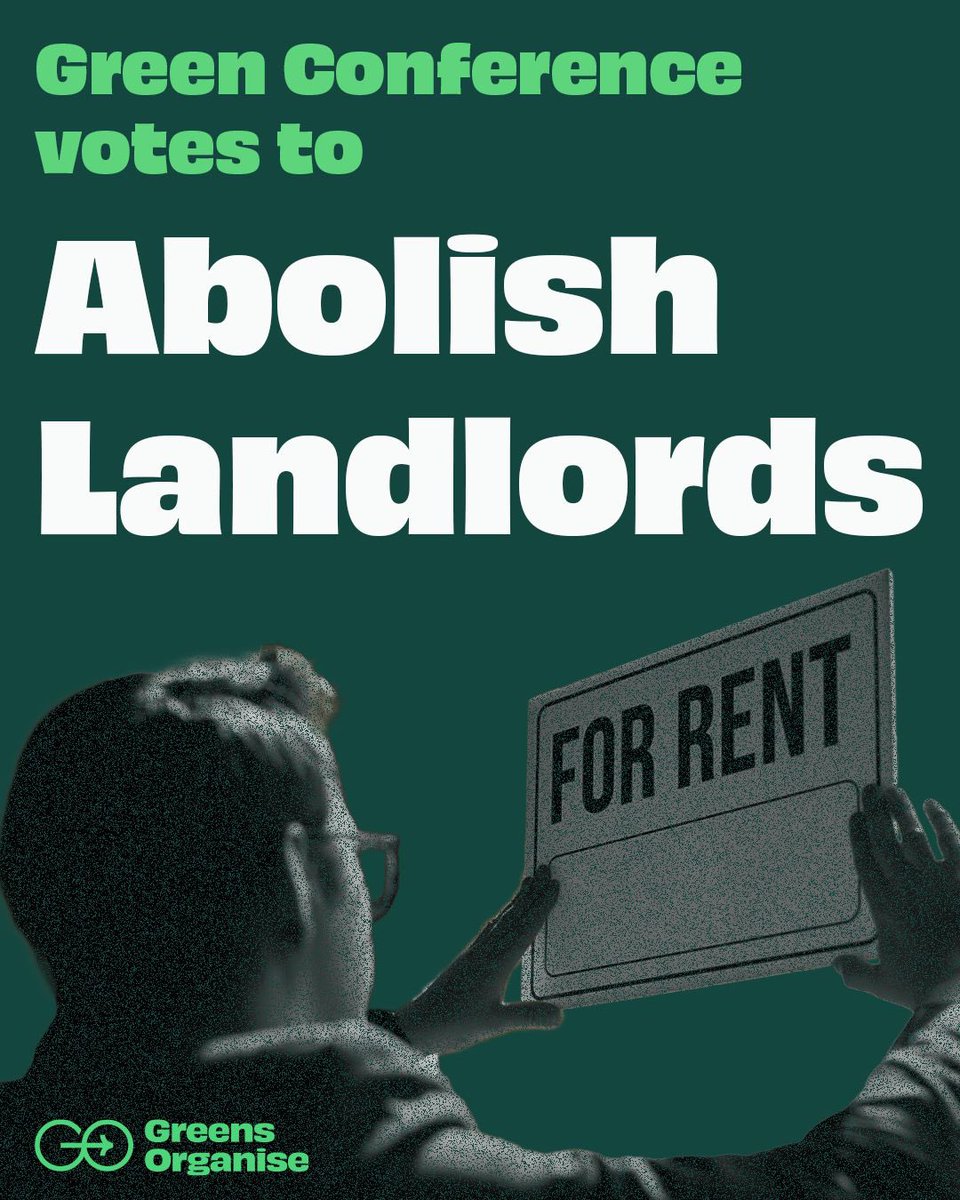A bizarre new policy has been agreed at the Green Party conference – to abolish landlords completely.
This is the first conference for the new leader, self-declared ‘eco populist’ Zack Polanski and one of its motions called for the party to “seek the effective abolition of private landlordism”. It was passed with a significant majority amongst activist attendees.
The abolition of landlords was in a package of wider anti-landlord measures including the introduction of rent controls, new taxation on Airbnbs and short lets, and double taxation on empty properties.
Buy to Let mortgages would be banned and councils given first refusal when landlords sell properties, when the property doesn’t meet insulation standards, or when a property has been empty for more than six months.
There would also be a programme of council house building – by a state owned building company rather than private firms – and Right To Buy would be scrapped.
The motion also called for private residential tenancy boards to help settle disputes before they reach a tribunal.
These measures go far further in their attack on landlords than the party suggested in its 2024 election manifesto.
Steve Jackson, co-chair of left-wing pressure group Greens Organise and co-proposer of the motion, is quoted as saying “Greens Organise members have voted overwhelmingly for us to support this motion at conference, and it’s no surprise. The private rental sector in this country is broken beyond repair.”
More than a third of landlords head for the exit
A survey has found that 39% of landlords are preparing to quit the private rented sector as the Renters’ Rights Bill reshaping of tenant protections raises concerns about the future of letting.
The findings from Simply Business show that the landlords are considering selling within the next year.
Along with the Renters’ Rights Bill, landlords also point to tighter EPC regulations and Making Tax Digital for their decision to quit.
The survey of more than 1,000 landlords found that a quarter (26%) view the Bill as their biggest worry, 39% still consider property letting worthwhile, while 26% remain uncertain.
The firm’s UK chief executive, Julie Fisher, said ”there’s a sense of trepidation amongst the nation’s landlords. The long-awaited Renters’ Rights Bill is set to drastically change the rental market in the next 12 months. But many landlords (76%) fear the new regulations won’t increase standards in the market the way the government hopes.”
Insuring more than 300,000 landlords allows us to gain first-hand insight into the integral role they play in the housing market. What’s clear is their desire to continue providing quality housing while maintaining viable businesses. With the biggest changes to tenancy law in a generation almost here, alongside several other regulation changes, landlords are asking for clarity.”
One of the most controversial changes under the Bill is the abolition of Section 21 ‘no-fault’ evictions which is the main concern for 38% of landlords.
However, 56% are concerned about lengthier, costlier eviction processes even though research shows that landlords tend to maintain stable tenancies.
Simply Business also found that 71% have never used a Section 21 notice to evict a tenant, while 97% have housed the same tenants for more than a year.
A third (31%) have provided homes for the same tenants for more than five years.
The new rules for restricting rent rises appear to cause fewer worries with 8% listing it as a priority issue, with many landlords saying they do not intend to pass on extra costs.
More than half have not raised rents in the past year, while two thirds do not expect to change their approach once the new limits come into force.
The upcoming law will also impose tougher energy performance standards and by 2030, rented homes must reach an EPC rating of C, up from the current minimum of E.
Landlords could face costs of up to £9 billion collectively, with 13% expecting to spend more than £10,000.
However, 21% remain unsure how to meet the requirements.
In addition to housing reforms, the government’s Making Tax Digital scheme will require quarterly submissions from April 2026 for those earning more than £50,000.
The majority (68%) of landlords say they are unprepared, with many expecting higher accountancy fees and more complex reporting.

